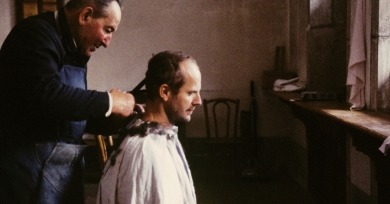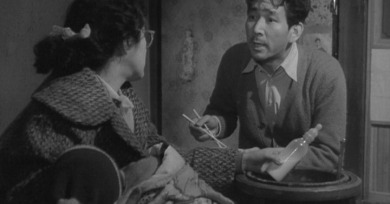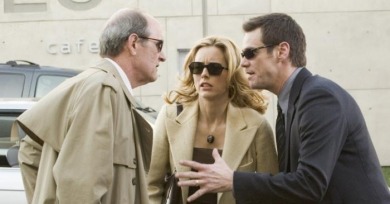Leo Goldsmith
Backs are broken and then (rather comically) re-broken, legs are amputated, and all the while the menacing, if plastic-looking ivy begins to spread, taking a particular interest in open wounds and eventually—when all hope for the humans seems lost—giggling.
4 Months is considerably more incisive in this regard, partly because of Mungiu’s empathy with his characters and perhaps because of the relative touchiness of the debate into which he enters. But Li's film is nonetheless forceful and provocative, even if it fails to strike as deeply empathic a note.
And I say this only half-mockingly: as dull-witted as the sentiment is, there is something incredibly satisfying about The Kingdom.
War—as metaphor and as brute, if distant, reality—is invoked a great deal throughout Shane Meadows’s This Is England.
Philip Gröning’s new documentary film, Into Great Silence, is not for everybody. It is, no more nor less, what it purports to be: a nearly three-hour film about monks with almost no speaking, music, narrative, or commentary.
Provocation, in case you hadn’t noticed, is the comedic instrument of the moment.
Through his own obscure, serpentine passageways, Mizoguchi charts the various fates of his protagonists as they struggle under the social and economic burdens of their occupation.
Each addresses a teenage subculture that some do not believe exists or else do not wish to acknowledge, and the motivations of each filmmaker were brought under suspicion as a result. But
Jim Carrey movie at that). In the movies, the smart money is on the historical epic, where the remote past can be mythologized beyond recognition.








